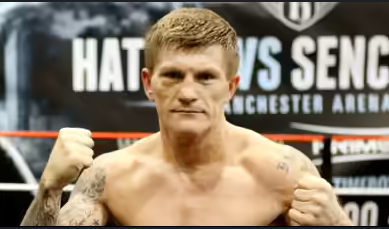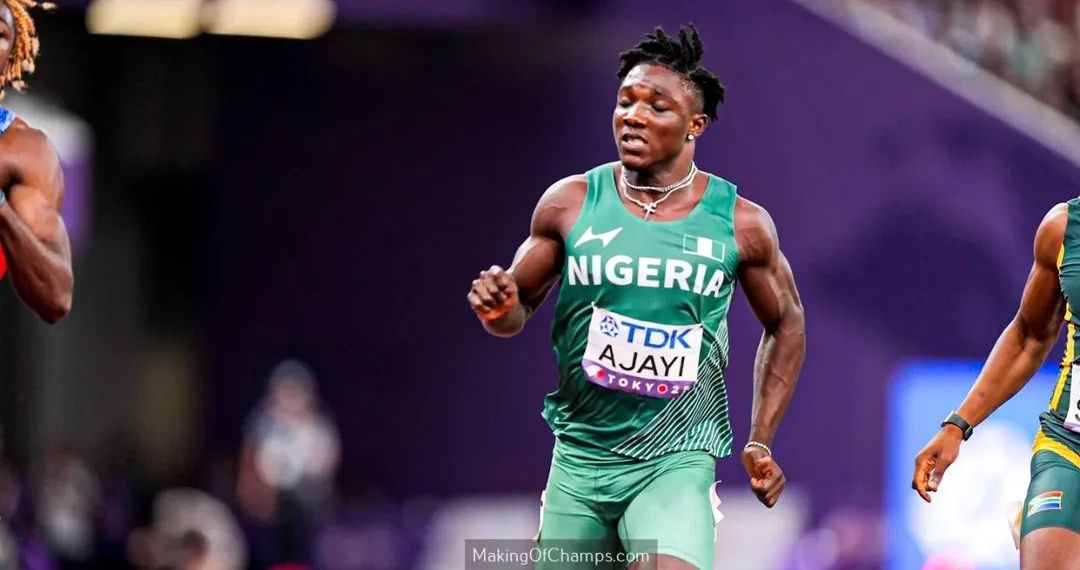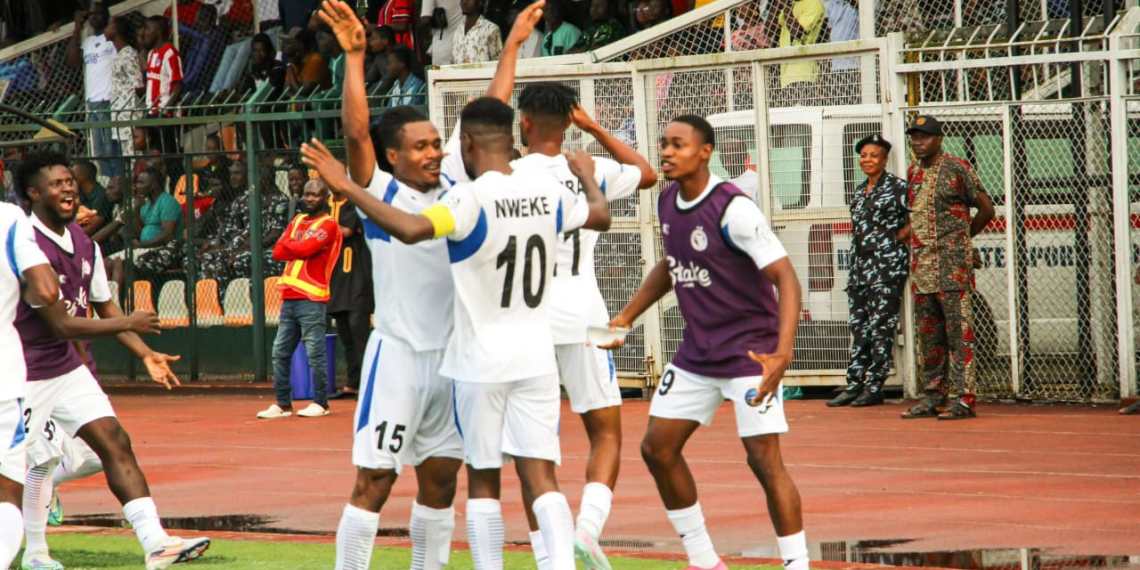Across Nigeria and the broader African continent, the world of sports has once again demonstrated its power to unite fans in moments of celebration and sorrow. News of the passing of British boxing legend Ricky Hatton at just 46 years old has sparked conversations in Lagos viewing centres and on WhatsApp groups from Accra to Johannesburg. Boxing, a sport with deep roots in West Africa, resonates strongly with local fans—Hatton’s tenacity and straightforward character made him popular even among those who typically favour football or athletics. According to Britain’s Press Association, his death was confirmed early Sunday morning, with Greater Manchester Police officially stating there were “no suspicious circumstances” surrounding the tragedy.
Hatton’s journey serves as a reminder of the heights attainable through dedication. Born in Stockport, Greater Manchester, Ricky Hatton rose from working-class beginnings to become one of the most formidable fighters of his generation. His aggressive fighting style and crowd-pleasing personality earned him world titles in both the light-welterweight and welterweight divisions. As many Nigerian sports enthusiasts still recall, Hatton’s 2005 victory over Russia’s Kostya Tszyu to claim the IBF light-welterweight world title was a defining moment. It was the kind of underdog story that resonates deeply in communities where hard work and perseverance are celebrated virtues.
Hatton’s star continued to shine as he challenged boxing greats like Floyd Mayweather Jr. and Manny Pacquiao. While he didn’t emerge victorious from these legendary bouts, his willingness to take on the world’s best showcased a level of courage that West African fans—and indeed, those across the globe—admire. For many aspiring athletes from Lagos to Tamale, Hatton’s legacy became synonymous with grit and determination, values repeatedly emphasized by local coaches. According to Sunday Oliseh, a renowned Nigerian sports analyst, “Hatton’s style—always marching forward, never backing down—reminded us all that success requires taking risks, even when the odds are tough.”
Yet, beneath the surface, Hatton’s story also carries hard-earned lessons about life after sporting glory. Unlike many athletes who shy away from vulnerability, Hatton was refreshingly frank about the mental health challenges he faced in retirement. In interviews reported by UK outlets like The Guardian and BBC Sport, he described struggles with depression, loneliness, and the intense pressure of adapting to life outside the limelight. This honesty sparked important conversations—not just in Britain but here in Africa, where mental health is often misunderstood or stigmatized.
Dr. Adebola Ogunyemi, a Lagos-based sports psychologist, believes Hatton’s openness set a precedent: “By speaking so candidly, Hatton made it easier for African athletes and fans to acknowledge that everyone, no matter how successful, can face tough emotional battles. His story has encouraged a new generation to seek help when needed.” According to data from Nigeria’s Federal Ministry of Health, more than 20 million Nigerians are living with one or more mental health conditions, yet care is rarely sought. In this context, Hatton’s candid admissions help erode harmful taboos, showing that such challenges demand compassion and understanding.
Across the African sporting landscape, Hatton’s influence went beyond the boxing ring. Nigerian and Ghanaian youths have long viewed top British boxers—with their origins often tracing back to African communities—as both distant stars and relatable role models. From his appearances on pay-per-view screens at Lagos Island gyms to his charity work supporting underprivileged youth back home, Hatton was regarded as someone who never forgot his roots. “He always recognized the struggles of everyday people,” notes Francis Anaba, a boxing coach in Ghana’s Bukom neighbourhood, renowned for producing African boxing talent.
Locally, boxing has a storied tradition. Greats such as Nigeria’s Hogan “Kid” Bassey and Ghana’s Azumah Nelson broke barriers for African fighters, paving the way for new generations—and their stories often intersected with global titans like Hatton. Nigerian and West African boxers, facing familiar challenges of limited sponsorship and recognition, continue to draw inspiration from the likes of Hatton, who achieved greatness with little initial fanfare. His career stands as a testament that, despite economic or social challenges, determination can propel one onto the world stage.
According to police reports published by Greater Manchester Police via official statements, officers were summoned to Bowlacre Road in Hyde, Tameside, early Sunday morning, where the 46-year-old Hatton was found lifeless. Their statement, cited by Britain’s Press Association, confirmed that the circumstances did not appear suspicious—a moment that has left fans and the wider sporting fraternity reflecting on the fragility of life and the pressures athletes silently endure. Hatton’s final social media updates, made just weeks before his passing, looked ahead to a professional return to boxing in Dubai against Eisa Al Dah, a bout many fans were looking forward to in hopes of seeing the legendary fighter reclaim some of his past magic.
Tributes from across the boxing world have poured in since the news broke. Former world heavyweight champion Tyson Fury, himself the son of Irish Traveller heritage closely linked with boxing’s long tradition, expressed his sorrow on Instagram: “RIP to the legend Ricky Hatton, may he rest in peace. There will only ever be one Ricky Hatton. Can’t believe this; so young.” These words have reverberated throughout Nigerian Twitter communities, many of whom view Fury and Hatton as representing boxing’s fighting spirit.
Echoing these sentiments, British former world champion Amir Khan tweeted via X (formerly Twitter): “Mentor, warrior, and one of Britain’s greatest boxers.” He reminded fans that even the strongest fighters may struggle in silence, stating, “Mental health isn’t weakness. It’s part of being human. We must talk about it, reach out, and lean on each other.” These affirmations have found special resonance among African fans accustomed to seeing athletes put up a brave face, even when facing immense private battles.
Matchroom Boxing, the sports promotional giant that shaped many notable careers and events featuring African boxers, released an official statement mourning Hatton’s passing. “Our thoughts and condolences are with Ricky’s friends and family at this tragic time. There’s only one Ricky Hatton,” they shared through their official channels. Such statements, echoing across British and global sporting news, highlight the profound mark Hatton left on the sport.
African fans have not been left out in voicing their grief and appreciation. On social media and radio call-in shows in Lagos and Accra, local supporters have shared personal memories of waking in the middle of the night to catch Hatton’s matches live. “Every time he fought, the whole compound would go silent, then explode with shouts at every punch,” says Musa Sani, a boxing aficionado and owner of a viewing centre in Agege, Lagos. “He fought for more than titles; he fought for every ordinary person trying to make it.”
The timing of Hatton’s attempted comeback in Dubai before his untimely death has also reignited debate in Africa on how best to support retired athletes. Unlike in Europe, where there are robust support systems for retired sports professionals, many African athletes face limited access to resources and counselling. Jude Okoye, a sports policy consultant in Abuja, notes, “Hatton’s public struggle and openness show the importance of mental health support—not just for celebrated stars, but also for everyday sportsmen and women in Africa.”
Internationally, Hatton’s story is now sparking wider calls for reform in how sporting bodies, from the Nigeria Boxing Board of Control to equivalent agencies in the UK, approach athlete welfare. According to a recent World Health Organization report, almost 35% of retired athletes experience significant psychological distress as they transition to life after the ring or pitch, an issue that cuts across continents and sporting disciplines. There are renewed suggestions that both African and international sports bodies must invest more in athlete education and aftercare initiatives, ensuring that sporting heroes do not suffer in silence once the applause dies down.
As the global sporting family mourns Hatton’s passing, his legacy is already being deployed as a teaching tool from Lagos secondary schools to Accra gyms. In Nigeria, where boxing continues to grow as both a professional path and a vehicle for social mobility, the lessons from Hatton’s life and career—resilience in the face of adversity, courage to open up about mental health, and loyalty to community—carry as much weight as any world title belt.
What enduring lessons do you think Ricky Hatton’s journey offers to Nigerian athletes and communities committed to better support for retiring sports talents? Share your thoughts in the comments below, and follow us for more updates on both local and international sports heroes.
Do you have a sports story or memorable moment to share about a favourite boxing or football hero? We’d love to feature your experience or help you sell your own story! Reach out to us at story@nowahalazone.com for submissions and story enquiries.
Need general support or want to comment on this article? Contact us at support@nowahalazone.com. Stay updated on the latest sports and community news—follow us on Facebook, X (Twitter), and Instagram for real-time stories and fan reactions!










